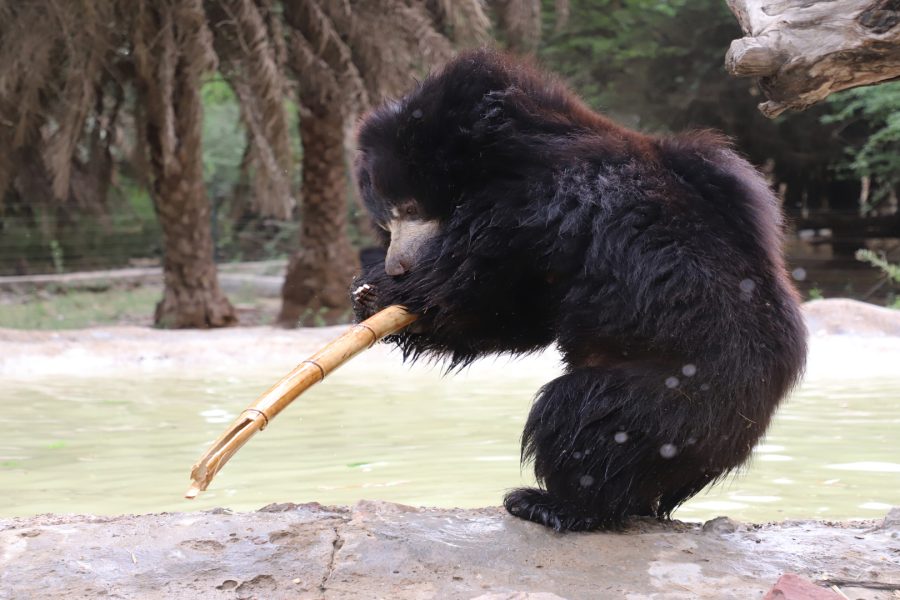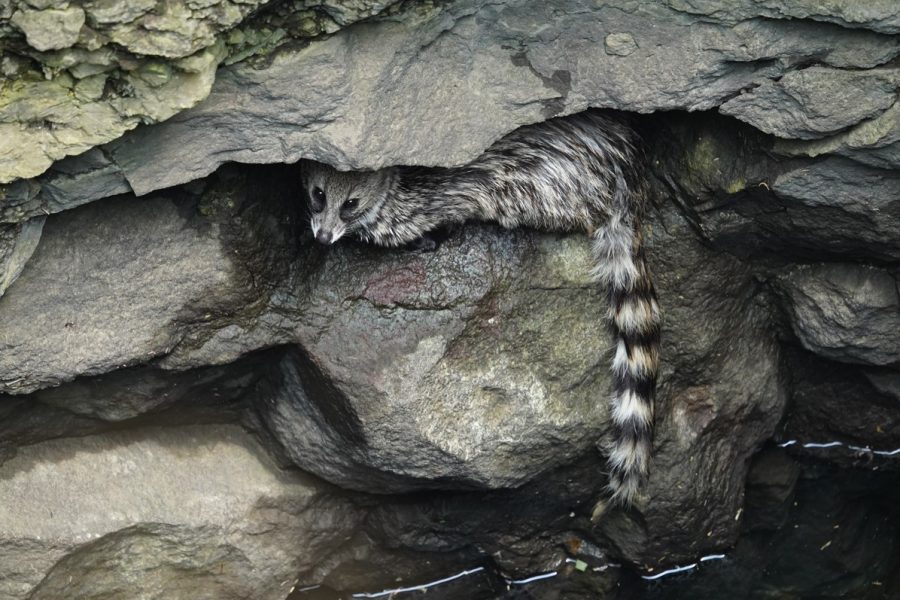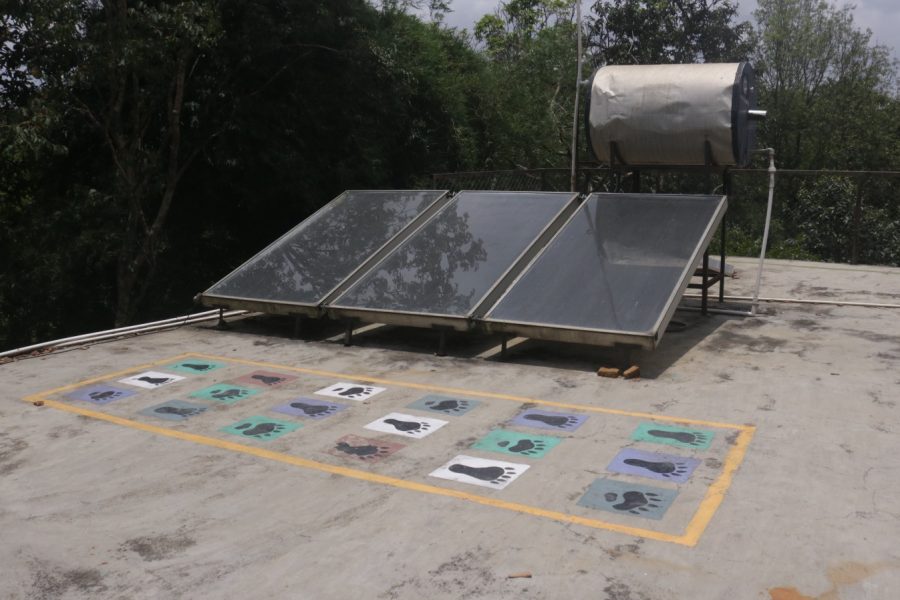The current rate of species extinction is estimated to be between 1,000 and 10,000 more than the natural rate. Recorded estimates show that about 10 million hectares of forest are cut down each year. The world population is already at 7 billion and according to UN estimates, it will only continue to increase, reaching 9.8 billion in 2050 and 11.2 billion in 2100. There is already pressure on existing agricultural resources to ensure the survival of all the people and animals on earth, with over 276 million people being vulnerable to food shortages. The earth’s alarm bells are going off, and this Environment Day, we need to foster the growth of a generation that is sensitive to the issues of climate change.
Though these facts are alarming, we canstill make a difference. Active participation of youth in matters of the environment, more nature-based education and empathetic behaviour of humans towards the needs of wildlife can go a long way in making a difference.
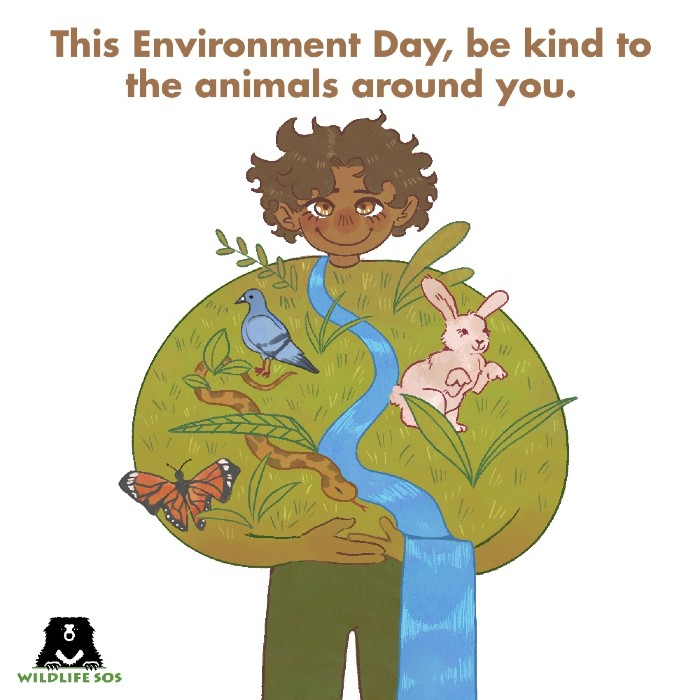
Wildlife SOS encourages the involvement of locals in nature-based activities that can help them build a better understanding of wild animals. After all, it is the connection of a person with the nature around them that pushes them to become a climate change leader and spearhead activities to preserve the environment. Here are a few small but meaningful measures undertaken by the Wildlife SOS teams across the country on the occasion of Environment Day.
In a collaboration with Bombay Natural History Society, a pan-India wildlife research organization, members of the Wildlife SOS Delhi team conducted a plantation drive at Asola Bhatti Wildlife Sanctuary.
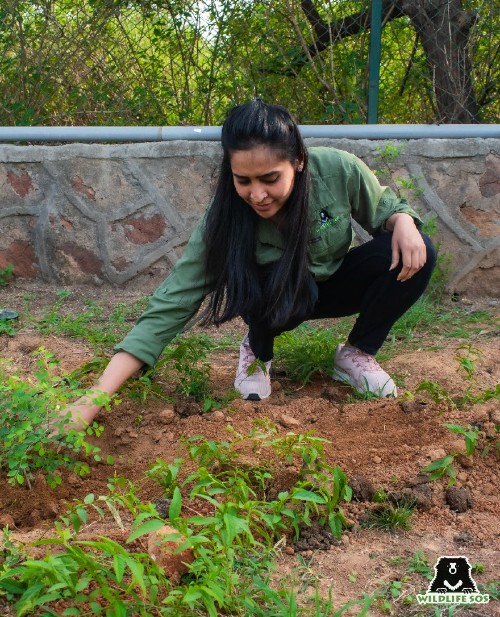
An arbitrary plantation, without scientific backing, can do more harm than good. Whenever one conducts a plantation drive, one should take care not to disrupt the natural vegetation of an area, except to enhance it!
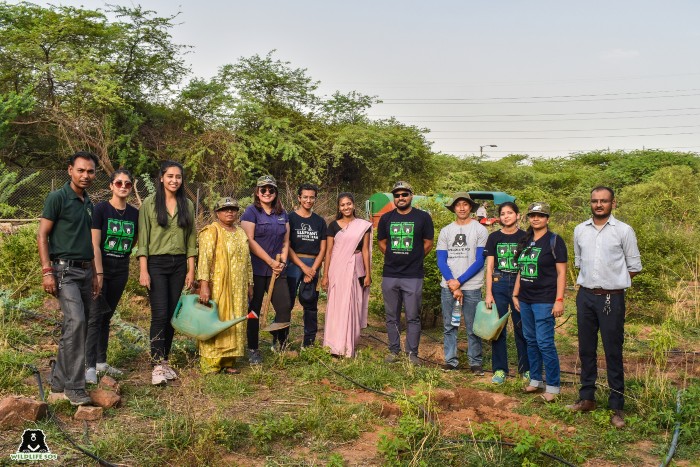
The BNHS-Wildlife SOS group planted saplings of Gangeti, Jhadber, Vajradani and Ghatbor, which were being grown at the nursery in Asola Bhatti Wildlife Sanctuary as a part of the reforestation project being undertaken by the BNHS. These plants are the native vegetation of the Delhi region and support various insects and birds who depend on them for food, water and shelter.
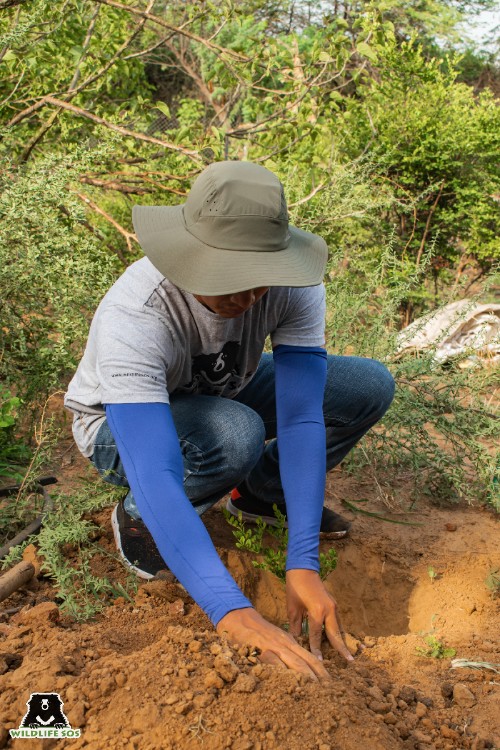
At Bangalore, a similar activity was undertaken for the environment day, wherein the Bangalore team as well as a group of interested participants planted a few saplings of the native species within the Bannerghatta Bear Rescue Centre (BBRC).
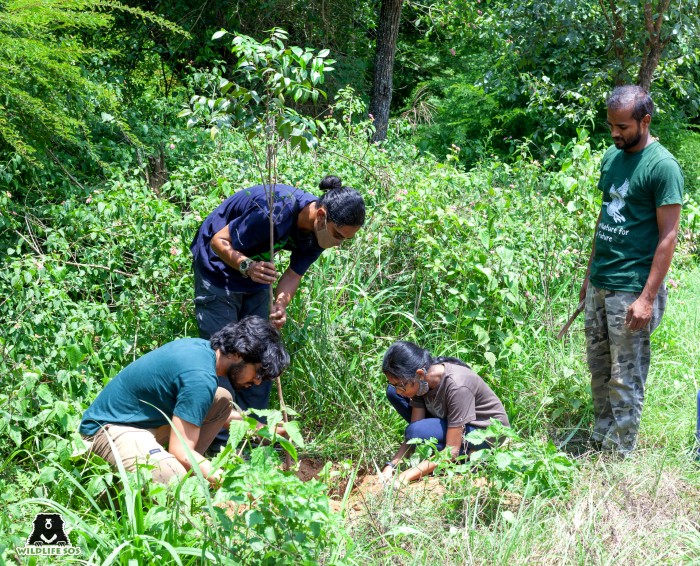
These plants included jackfruit, tamarind and jamun. After the plantation drive, participants went on a birdwatching walk around the dense BBRC, which is located within Bannerghatta National Park.
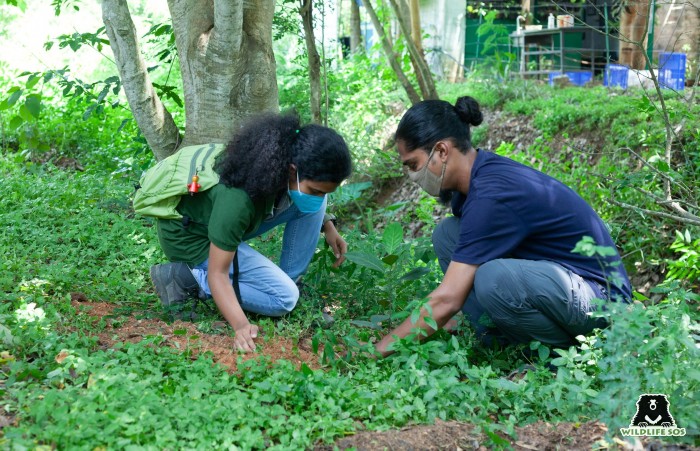
The walk was led by Geeta Mohan, who often conducts nature walks within Bangalore. Over 35 species of butterflies and various bird species were spotted during the walk. After the walk, the group also got a chance to watch the bear care staff feeding the morning meal to the rescued sloth bears.
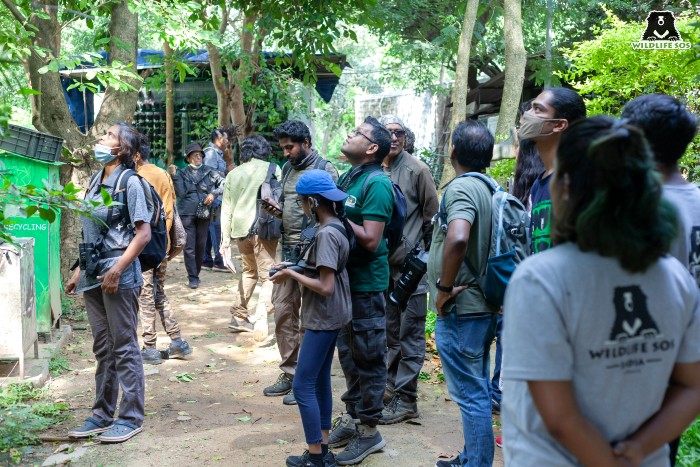
Meanwhile, the Wildlife SOS team in Jammu & Kashmir prepared to conduct a morning nature walk amidst the lush greens of Dachigam. Aaliya Mir, Manager & Education Officer – J & K Project, led the walk, which was attended by children and teaching staff from four schools.

Aaliya identified all the species of birds and insects that they came across during the 3-kilometre-long walk, and also spoke about the indigenous species found here, in the crown of India. At the end of the walk, the group arrived at the Dachigam Bear Rescue Centre, where Aaliya spoke about Wildlife SOS’ conservation work.

At Agra, a different kind of walk took place: Students marched on the roads to raise awareness about the declining forests and the oncoming climate crisis. At the “One Earth Seminar”, to inaugurate the launch of the “One Station Hundred Trees” campaign, Mr. Shivam Rai (Elephant Project Head Coordinator at Wildlife SOS) spoke about the projects being undertaken by Wildlife SOS to preserve India’s wildlife.

He spoke about the organization’s work, along with important pointers that every conservationist must keep in mind when working with wildlife! The attendees of the seminar also planted a few saplings to celebrate the launch of the campaign.

This Environment Day, if we can share one message with the people reading this, it would be to expose the new generation to nature and wildlife as much as possible. Teaching children to be empathetic and kind towards animals and plants can go a long way in helping our planet. Since children are the future of the planet, it is important to inculcate ideas of conservation, so that our future climate leaders can make better choices for Mother Earth.


